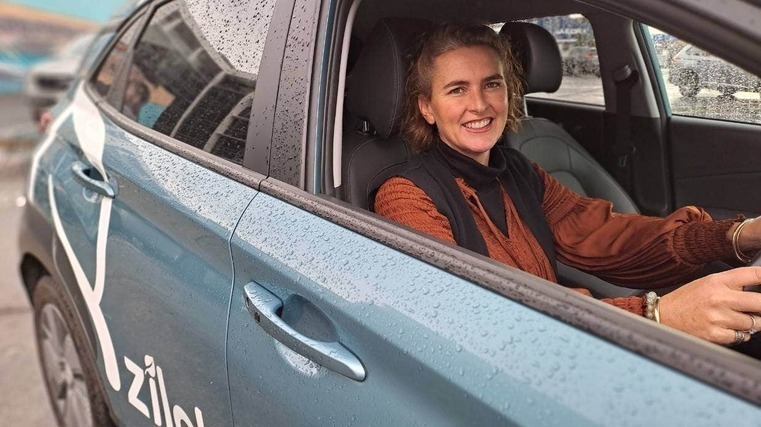Policies creating ‘penalty for plugs’

An industry group says plans to reform the clean car standard (CCS) are the latest in a series of moves by the government to create a “penalty for a plug” and hamper the uptake of EVs.
Drive Electric warns the proposed reduction in CCS fees for imports that fail to meet carbon dioxide (CO2) targets in 2026 and 2027 means New Zealand is likely to become a dumping ground for high-emissions vehicles.
Kirsten Corson, chair of the group, adds that the latest policy tweak will impact consumers and be disruptive to businesses across the automotive supply chain.
“This week’s announcement is incredibly disappointing for the country because if the government was truly interested in dropping costs for Kiwis then they would be trying to accelerate EV adoption,” she told Autofile Online.
“It costs $3 to charge an EV off-peak overnight but it’s about $20 to put 6.9 litres of petrol in a car.
“It also doesn’t matter whether you’re a petrol, diesel or EV importer of vehicles, what the industry needs is consistency because they’re ordering vehicles 12 months in advance, so this latest set of changes to the standard is incredibly hard for whatever side of the industry you’re involved with.”
Corson, pictured, is concerned the CCS changes announced by the coalition on November 17 will result in older, less efficient cars staying in the fleet for longer.
She says it is not surprising there has been pressure on sales of high-emissions vehicles after the removal of the clean car discount (CCD) slowed the adoption of EVs and has meant fewer carbon credits in the market.
“The clean car programme was designed to have two elements, the discount, which was the carrot, and the stick, which was the standard,” she explains.
“When you compare us to Australia, they have got a $100 penalty fee and we have now reduced ours to $15. It means we will become a dumping ground for high-emission vehicles, which will stay on our roads for several decades.
“We’ve got one of the oldest car fleets in the OECD and our grandchildren are going to be breathing in emissions from vehicles on the road now in 20 to 30 years.”
The amendments to the CCS, which are progressing through parliament, are viewed by Drive Electric as the latest setback for efforts to increase EV adoption.
Corson highlights that since the current government came into power the CCD has been axed, road user charges have been introduced for cars with a plug, ACC levies for EV owners have increased and the CCS targets have been altered.
“The government has mindfully changed policies and created a penalty for a plug. Other countries are trying to support EV uptake but in New Zealand we’re creating barriers – it’s an embarrassment,” she says.
“The tragedy about this is that the OEMs were using credits to make their EVs cheaper and to create price parity with other vehicles, but with this latest change they will not have the same credits in the market to be able to reduce their prices.
“As a result, they will likely reduce the amount of EVs they bring into the country, they will reduce the range of EVs they bring into the country and they will choose other markets because why would you bother in New Zealand when there is a government that has systematically dismantled EV policy and created barriers.”
Corson also doubts the government will achieve its goal of having 10,000 public EV chargers available by 2030 as she expects the latest measures to impact domestic sales of zero and low-emissions vehicles.
“If you’re a charge-point operator would you be racing in and putting in thousands of chargers when you have a government that’s actively trying to decrease the number of EVs coming into the country?
“The government is not going to hit its 10,000-chargers target and we won’t see economic growth in New Zealand. Investment is not coming here for anything to do with charging infrastructure and investors are actively choosing to take their money offshore and avoiding New Zealand.”
She opines that transport was the government’s best hope for meeting the country’s climate goals but “they have signalled very strongly that they clearly don’t care about that”.
Corson was also keen to correct some politicians after they reportedly made comments suggesting global EV sales are declining.
“That is completely incorrect. In 2023, some 14 million were sold, last year there were 17 million and this year we’re on track for over 20 million globally. The numbers are still increasing, even if the rate of uptake is slower in some markets than anticipated.
“One in every four vehicles being sold globally is electric, but that is far from what’s happening in New Zealand due to the government steadily putting policies in place to hamper EV sales.
“Drive Electric will continue to do what we do with advocacy, networking and education to encourage the uptake of EVs.
“At the end of the day, the irony of the government’s decisions is that EVs are more cost-effective to run than other vehicles and are a chance to help Kiwis save money.”





